Events
| Name | organizer | Where |
|---|---|---|
| MBCC “Doing Business with Mongolia seminar and Christmas Receptiom” Dec 10. 2025 London UK | MBCCI | London UK Goodman LLC |
NEWS

IGO stands by incoming CEO, despite Rio Tinto sacking him www.mining.com
Australia’s lithium and nickel producer IGO (ASX: IGO) is standing by its incoming chief executive officer, Ivan Vella, after Rio Tinto (ASX:RIO) sacked on Wednesday its former aluminum boss for an alleged breach of confidentiality.
Vella, who spent two decades at Rio Tinto, was already due to leave the mining giant in December. He is set to replace acting CEO Matt Dusci, who took the reins after former top executive Peter Bradford suddenly died last year.
IGO’s board has been under fire over its costly takeover of rival Western Areas, but it was the impending arrival of Vella which sparked a response from chairman Mike Nossal.
Incoming chief executive officer, Ivan Vella. (Image courtesy of IGO.)
“I need to acknowledge the news overnight which relates to Ivan’s departure from his previous employer,” he said in Thursday’s shareholder meeting.
“The Board is engaging with Ivan to more deeply understand the circumstances … however, it is our expectation that Ivan will start with IGO in early December as planned,” Nossal said.
Shares in the battery metals producer fell 4.3% to A$8.85 each by Thursday’s close as IGO also said it had missed the lower end of production guidance at one of its nickel mines due to a fire at its Nova nickel-copper-cobalt mine’s power plant.
IGO flagged a material writedown of nearly A$1 billion in the June financial year due to ballooning capital costs at its newly acquired Cosmos nickel project in Western Australia.
Year-to-date the stock has lost almost 33% of its value, leaving the Perth-based miner with a market capitalization of A$6.7 billion ($4.3bn).
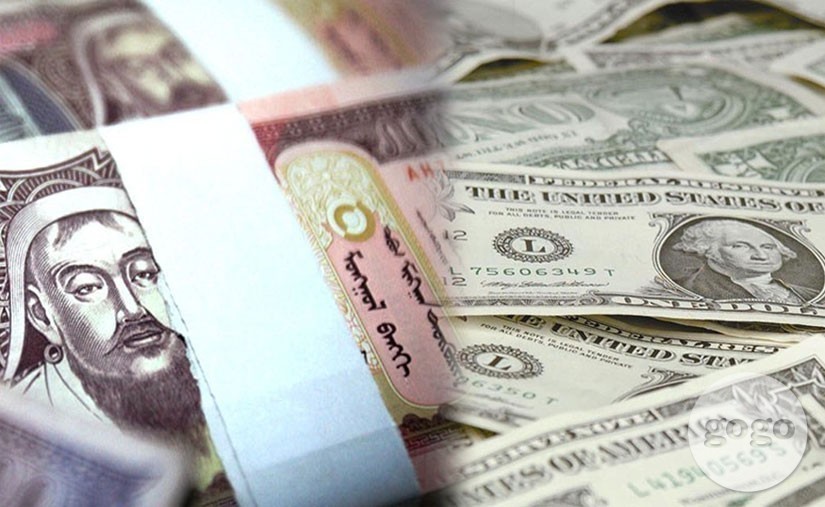
Minimum wage to be MNT 660 thousand next year www.gogo.mn
In accordance with Resolution No.12, dated October 13, 2023, issued by the National Tripartite Committee on Labor and Social Consensus, the minimum wage has been changed to MNT 660,000 per month effective as of January 1, 2024.
According to the 4.2 of law on Minimum Wage, the minimum wage shall be determined or changed by taking into account of the following factors: changes in the minimum standard of living of the population, appropriate ratio of labor productivity and average salary, the minimum amount of full pension to be provided by the social insurance fund, economic growth and employment level and inflation rate.
As defined in the International Labor Organization, “The minimum amount of remuneration that an employer is required to pay wage earners for the work performed during a given period, which cannot be reduced by collective agreement or an individual contract, and the purpose of minimum wages is to protect workers against unduly low pay”.
According to the law on Minimum Wage of Mongolia, the Minimum wage shall mean the minimum limit of the basic hourly remuneration /wage/ that should be observed in general which was determined by the competent person in order to protect the legal interests of employees and workers /hereinafter referred to as "employees"/ who work under labor contracts, hired work contracts, and other similar contracts for simple jobs that do not require specific education or special skills.

Sustainable cashmere day raises awareness on environmentally friendly livestock production www.gogo.mn
The Mongolian Sustainable Cashmere Platform at UNDP and the Improving Adaptive Capacity and Risk Management of Rural Communities in Mongolia (ADAPT) project funded by the Green Climate Fund jointly organized the first ever Sustainable Cashmere Day-2023 event. The event took place in Ulaanbaatar bringing together government officials, the private sector, herders and cooperatives, academy, international organizations, and buyers to discuss importance of sustainable cashmere and Mongolia’s efforts towards making the cashmere more sustainable.
The goals and priorities of the Government of Mongolia on adaptation and mitigation of climate change were discussed on the event as well as the requirements and importance of sustainable and environmentally friendly livestock production. The event aimed to raise public awareness of environmentally friendly and sustainable cashmere, to support collaboration between stakeholders, and to promote industry’s best sustainable practices.
The cashmere sector is vital for Mongolia as it sustains the livelihoods of approximately one million pastoralist herders and represents Mongolia’s global brand. Herders generate about 80 percent of the country’s agricultural sector output, playing a pivotal role in diversifying the economy. Event also recognized the best herders, herder organizations, cooperatives, and cashmere industry producers who have made progress in meeting the sustainability policy and sustainable cashmere standards in Mongolia in the eight categories.
Stakeholders of the cashmere supply chain such as representatives of herders, cooperatives, national and international cashmere factories, and industry experts, as well as representatives from the Ministry of Food, Agriculture and Light Industry and Ministry of Environment and Tourism discussed the policies, goals, and challenges of sustainable cashmere and animal husbandry adapted to climate change and highlighted good industry practices. Mongolian Sustainable Cashmere Platform is a collaborative umbrella mechanism established to support and enhance trust and leadership to accelerate the long-term sustainable development of the cashmere industry and to clarify the responsibilities of the stakeholders. The platform is working to identify and implement measures to eliminate the main causes that limit the sustainable development of the Mongolian cashmere industry.

E-Mongolia Expands Service Offers www.montsame.mn
Prime Minister Oyun-Erdene Luvsannamsrai met with the team of the unified digital platform of public services E-Mongolia on November 13, 2023. He expressed gratitude to the engineers and colleagues from E-Mongolia Academy for their professionalism and dedication in developing the system.
Director General of E-Mongolia Academy Myagmarnaran Bavuujav briefed about updates of the E-Mongolia 4.0 platform. "Besides E-Mongolia, we are responsible for the development of 29 state systems, including KHUR, DAN, erp e-Mongolia, lavlagaa.mn, docx.gov.mn, digital signature system, notification delivery system, and opendata.gov.mn. We adhere to the principle of cooperation with the private sector, not competition. 329 organizations out of 462 that use KHUR information exchange system, for example, are private entities. In the future, there is a need to launch a national campaign to enhance the e-skills of the population. Today, the e-skills rate in Mongolia is 48.3 percent. As part of the E-Mongolia 4.0, we are working to introduce a unified payment system next year."
The e-Mongolia team was tasked to make further updates to the system, taking into account the opinions of citizens and paying special attention to e-transition in the health sector. Prime Minister L. Oyun-Erdene emphasized the need for cooperation with the Capital City Governor's Office in solving city problems such as public transportation and public services. During the meeting, proposals to create a unified Mongolian network, introduce a payment system, and use artificial intelligence (AI) in E-Mongolia 4.0 were put forward.
With the application of AI, E-Mongolia 4.0 is focused on increasing the number of services and simplifying their usage to enable improved and accessible services. In the future the government will be in charge of carrying out calculations, standards, and modeling of a system and the private sector will be responsible for system development," stated Uchral Nyam-Osor, Minister of Digital Development and Communications of Mongolia.
The participants noted the lack of professional personnel, high workload, and low wages, as well as the need to improve working conditions. The representatives from public organizations emphasized the importance of providing e-services, updating the system, ensuring cross-sectoral coordination, and increasing investment while paying special attention to information security.
At the end of the meeting, Prime Minister L. Oyun-Erdene noted that public organizations should run proper management rather than compete with the private sector in system development and implementation. He pledged to support the initiatives to improve working conditions for engineering and technological personnel and establish an e-office, run a national campaign to enhance the e-skills of the population and update the e-Mongolia 4.0 system.
The proposals from the meeting are to be discussed at a meeting of the Cabinet of Ministers.
The E-Mongolia 1.0 system was launched on October 2, 2020, and offered 181 services from 23 public organizations. Presently, 1,106 services from 86 organizations have been integrated into E-Mongolia. The system has now 1.7 million users offering 36.5 million public services online and people have saved MNT 706.9 billion.
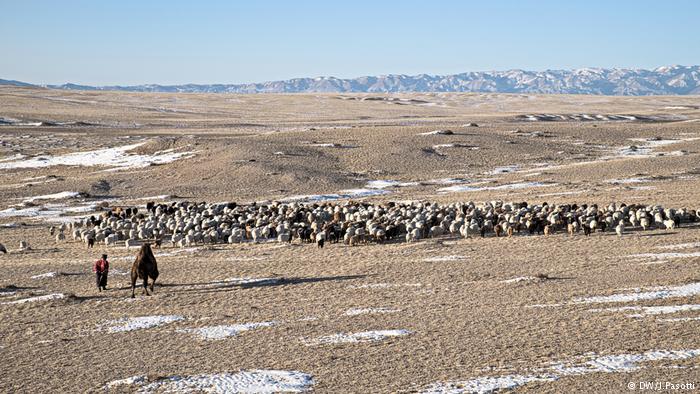
Large parts of Mongolia likely to experience harsh winter www.xinhuanet.com
Large parts of Mongolia are likely to experience the extreme wintry weather "dzud" this winter, local media reported Tuesday, citing the country's National Agency for Meteorology and Environmental Monitoring.
A dzud is a brutal weather phenomenon in which a frigid winter kills vast numbers of livestock, either by starvation or freezing weather conditions.
"A recent risk assessment of the dzud showed that more than 50 percent of the total territory of our country is at high risk of experiencing dzud this winter, and 40 percent is at medium risk," the weather monitoring agency said in a statement.
Specifically, southern Gobi areas and western parts of the country, which experienced a bad summer, are very likely to experience the harsh winter, it said.
The livestock sector is a central pillar of the Mongolian economy, while the country's livestock population totaled 71.1 million by the end of 2022.
A dzud in 2016 killed more than 1 million livestock in Mongolia, a nation where pastoral herding is still common.
Around 60 percent of the Asian country's territory has so far been covered by snow after a heavy storm hit the country earlier this month, according to the agency.
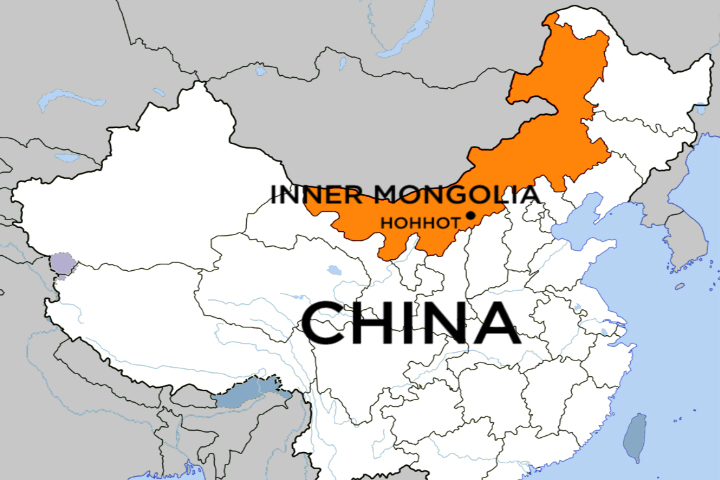
A more dynamic Inner Mongolia witnesses trade with neighboring countries flourish under BRI www.globaltimes.cn
Along the 1.86-kilometer route connecting Chinese and Mongolian stockyards, several autonomous driving trucks are operating back and forth between coal terminals, one of the most-traded commodities between the two countries.
The trucks have been running for nearly 16 months since China's first Auto Guided Vehicle (AGV) cross-border transport system for land port entered operation at Ganqmod Port in North China's Inner Mongolia Autonomous Region, the largest highway port on the China-Mongolia border.
"The maximum speed of AGV can reach 25 kilometers per hour, and can complete a round trip between two stockyards in 50 minutes," Gao Mingyue, general manager for AGV central control of E-commodities Holdings Limited (E-comm), told the Global Times over the weekend.
E-comm, the operator of the AGV transport system, has a total of 30 AGVs, and deploys 24 AGVs on weekdays.
The Mongolian side also has 30 AGVs, with an annual transport capacity estimated to be near 15 million tons if all 60 AGVs are in use.
The automatic transport system has boosted the efficiency of transport between China and Mongolia. "Each lorry can load with at most four standard containers and makes four to six round trips each month, and a single AGV loading with two standard containers can make six to seven round trips each day," Gao noted.
The AGV transport system has been applied across multiple Chinese land and sea ports for nearly two decades, but this is the first time it has been fully integrated into a land port, the Global Times learned, with the system also deployed at the border port of Ceke, another land port in the northern Chinese region bordering Mongolia.
Ganqmod Port is a major energy import channel for China and Mongolia with a focus on the coal trade, and also acts as an important hub for the China-Mongolia-Russia economic corridor.
As of Monday, the port had handled 31.73 million tons of cargo this year alone, up 119.16 percent year-on-year, becoming China's largest port for importing Mongolian coal and copper powder, data from the port administration showed.
To improve communications between the two sides, the port recently resumed two-way passenger traffic on Monday after more than three years of suspension during the pandemic, signifying that all land ports in the region have resumed cross-border passenger clearance.
According to local customs data, a total of 91 passengers passed through the clearing area on the first day of resumption. In 2019, the port facilitated 183,695 cross-border passengers from both sides.
Before the resumption of passenger clearance, Mongolian personnel had to enter China for business and wholesale purchases via Manzhouli or Erenhot Port, which are China's largest trade hubs with Russia and Mongolia respectively.
Border advantages
Situated in the north of China, bordering eight provinces in the country as well as Russia and Mongolia, Inner Mongolia Autonomous Region has become a major bridgehead in the nation's push for opening up in the northern area.
Taking advantage of its significant port cities both on the highway and railway routes, the autonomous region is seeing more economic and trade connections with neighboring Mongolia and Russia, the two of which accounts for more than half of Inner Mongolia's import‑export trade as well as a considerable share of China's trade with both countries.
Taking Ganqmod Port as an example, it has grown robustly to a major connection hub for the China-proposed Belt and Road Initiative (BRI), Mongolia's "Steppe Road Program" development strategy and the China-Mongolia-Russia economic corridor, Ulziikhutag Bayanmunkh, chairman of the Border Ports Administration, Mongolian Umnugobi Province, told the Global Times when visiting the port.
In the wake of the development of the BRI, foreign trade in Ceke Port, located at Ejin Banner, has set new records for trade activity this year, reaching 14.82 million tons, worth 9.78 billion yuan ($1.34 billion), the highest level since the port was opened 31 years ago, the Global Times learnt from local customs officials.
"A total of 16 channels for cross-border freight trucks have all been put into use this year, and the surging demand for merchandise from both Chinese and Mongolian markets lifted the port's trade volume," Hong Yan, general manager of Ceke-based Inner Mongolia Zhongce E-commerce Co, told the Global Times.
At present, over 90 percent of cross-border cargo via Ceke Port is coal. Hong's company is ramping up efforts to expand import cargo categories into wool, meat, and export China-produced rice, fruit, vegetable and light industrial products to Mongolia.
"The BRI has offered assistive and guidance policies for cross-border trade companies from the technology and commerce sectors, plus the clearance capacity might be further enhanced by Ejin Customs and related authorities. I believe China-Mongolia trade will reach new heights next year," Hong said.
China has remained Mongolia's largest trading partner for a number of years. Bilateral trade between the two countries amounted to $13 billion in the first three quarters of the year, accounting for 72.3 percent of Mongolia's total foreign trade, Mongolia's National Statistics Office said in a statement.
In terms of railway border links, progress has also been rapid.
Over the past decade, the traffic volume of China-Europe trains at the Manzhouli Railway Port have ramped up considerably. By August, the number of China-Europe freight trains that had entered and exited the port was 24,316, with 2.31 million containers moved, data from Belt and Road Portal showed.
Trains from across China arrive at Manzhouli, one of six railway ports that China-Europe freight trains pass through, before heading to Russia and other European countries, and trains from Europe that travel through Russia enter China at Manzhouli before heading to other Chinese cities.
The first China-Europe freight train left Manzhouli port in September 2013
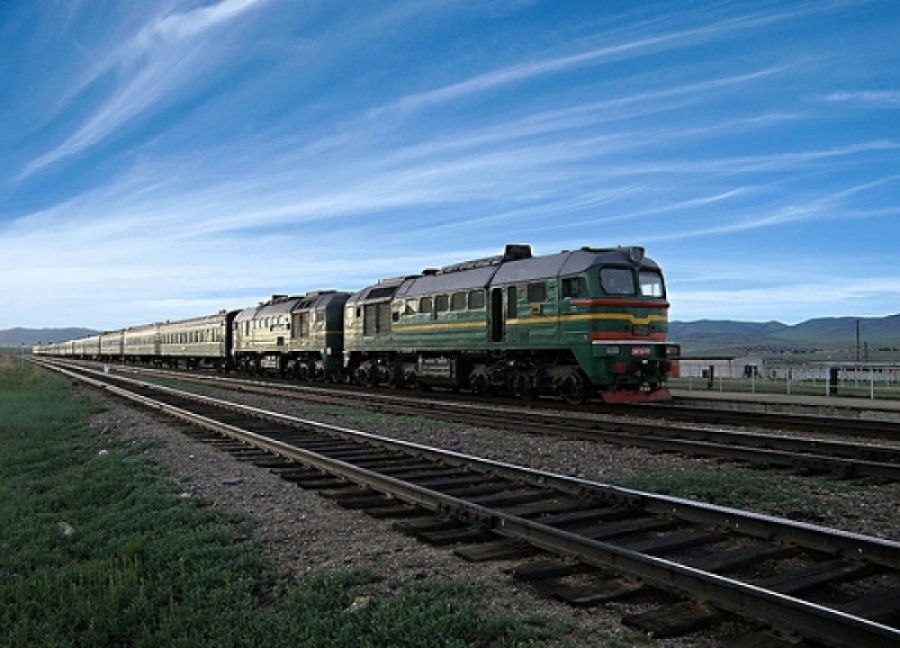
China-Mongolia border port resumes passenger traffic www.xinhuanet.com
The Ganqmod Port in north China's Inner Mongolia Autonomous Region, the largest highway port on the China-Mongolia border, resumed two-way passenger traffic on Monday.
To ensure normal passenger clearance at the port, measures including service optimization and the opening of multiple inspection channels have been taken, said the port administration.
In 2022, the port completed the customs clearance of over 19 million tonnes of goods, more than twice that of 2021.
Ganqmod Port is a major energy import channel for the country and an important hub in the China-Mongolia-Russia economic corridor.
(Web editor: Zhang Kaiwei, Liang Jun)
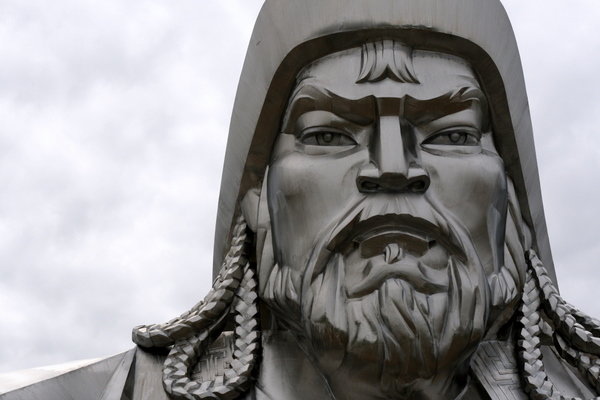
Mongolia celebrates 861st anniversary of Chinggis Khaan's birth www.akipress.com
Mongolia celebrates the 861st anniversary of the birth of Chinggis Khaan and the Day of National Pride of the Mongols today, November 14. The birthday is celebrated on the first day of the first winter month according to the lunar calendar each year.
Today, ceremonies will be held to honor the national flag and the statue of Chinggis Khaan on the main square of Ulaanbaatar.
The president of the country awards the highest state award, the Order of Chinggis Khaan, for special services to the homeland and people on this day.
To commemorate the anniversary, the President, Speaker of the Parliament and Prime Minister will pay tribute to the statue of Chinggis Khaan.
The Morin Khuur ensemble will be awarded the Order of Chinggis Khaan on this day.
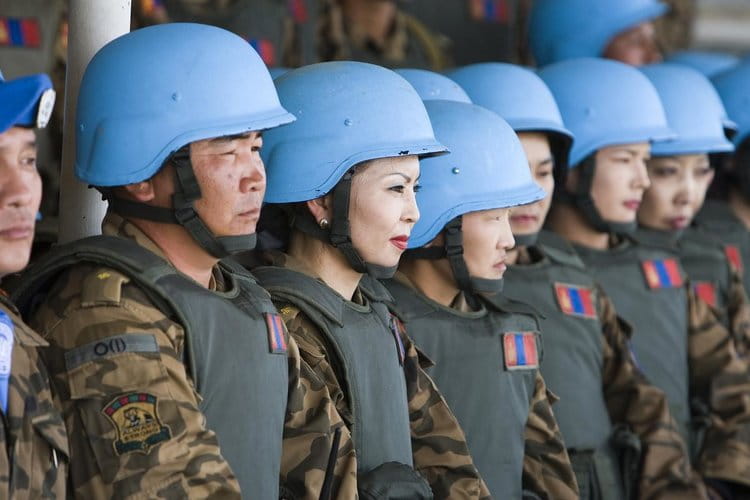
Mongolian Peacekeepers Awarded State Decorations for South Sudan Mission www.montsame.mn
President of Mongolia and Commander-in-Chief of the Mongolian Armed Forces Khurelsukh Ukhnaa today awarded state decorations to military personnel of the 12th Mongolian contingent to the UN peacekeeping mission in the Republic of South Sudan.
Order of Military Merit
-Lieutenant Colonel Tumenjargal Munkhbayar.
-Senior Ganzam Davaasuren.
Medal of Military Honor
-37 servicemen under the command of Lieutenant Colonel Purevdorj Nergui and Senior Ariunbolor Tsend.
Medal for Peace
-409 servicemen under the command of Captain Batbayar Enkhbaatar, Senior Officers Dondogmaa Jamiyanjav, Munkhbat Ganbold, and Otgon-Erdene Sukhbaatar.
President of Mongolia and Commander-in-Chief of the Mongolian Armed Forces congratulated Mongolian peacekeepers on behalf of the State, Government, and people of Mongolia for successfully completing their mission with honor and professionalism. President Khurelsukh also extended best wishes for their future endeavors. Additionally, on behalf of the State, the Mongolian President extended heartfelt gratitude to the family members of the peacekeepers, recognizing their pivotal role as the backbone throughout the mission.
Mongolia ranks 23rd on the list of countries contributing troops to the United Nations and is the leader in the region for the number of female peacekeepers. Mongolia is successfully implementing a policy of ensuring national security through political and diplomatic methods by upholding a peace-loving, open, and multi-pillar foreign policy while actively engaging in efforts to promote global peace and security.
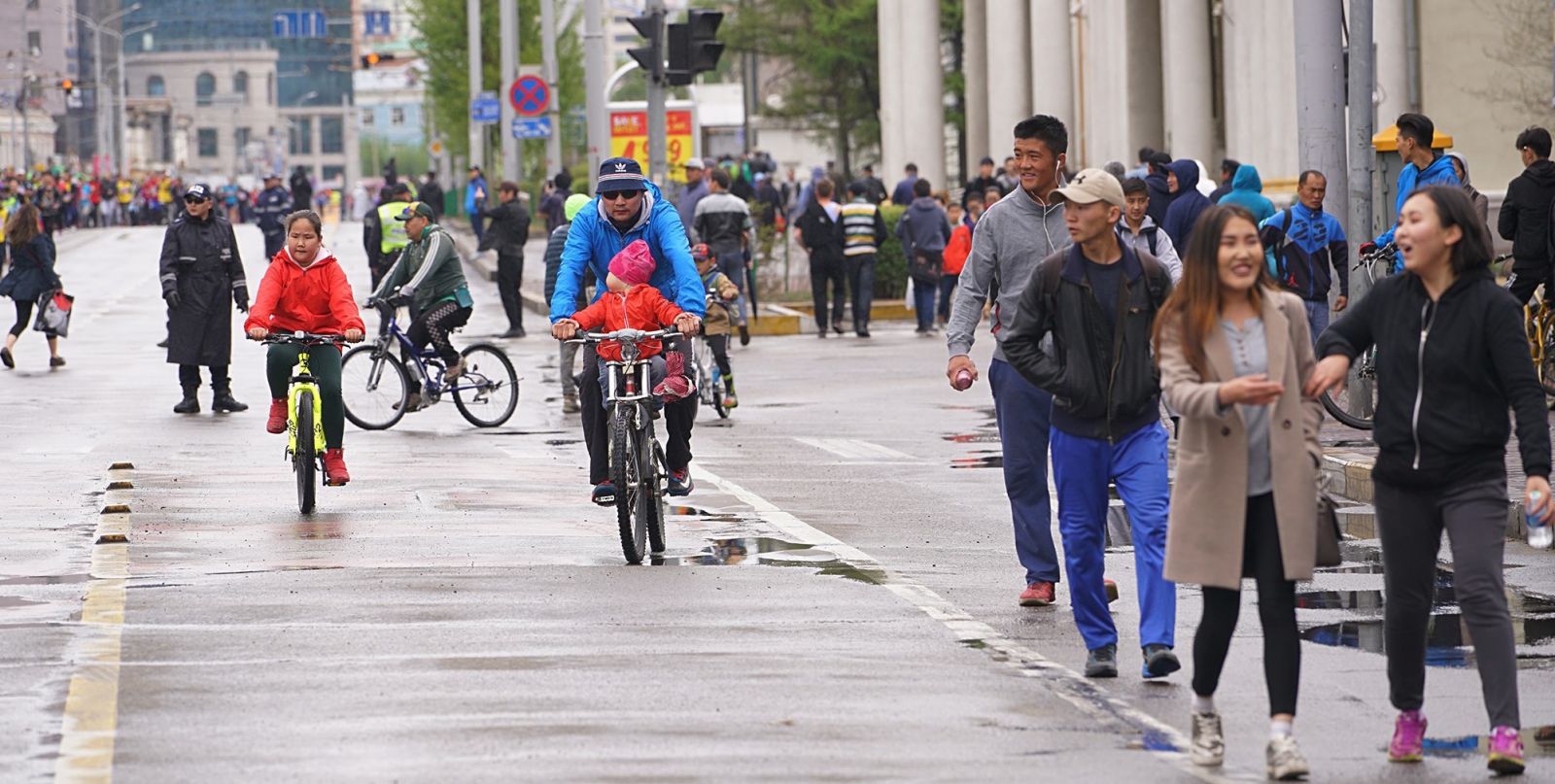
MNT 140 billion required for pension increase of MNT 100 thousand resolved www.gogo.mn
In relevance of the State budget 2024 approval, the Ministry of Finance and the Standing Committee on the Budget of the Parliament have given the following information.
D.Togtokhsuren, Head of the MPP Group in the Parliament, said, “The budget income has been increased by a total of MNT 590 billion which improved the budget balance. Also, budget expenditures were reduced by about MNT 300 billion and the amount of investment increased slightly.
As for social welfare, the issue of pension increase has been resolved. It was estimated to increase by 10% starting from April 1, 2024. Citizens who receive low pensions are the most affected by inflation. Therefore, it is considered correct to increase the pension MNT 100 thousand. And a total of MNT 140 billion required for pension increase of MNT 100 thousand has been resolved”.
The State Budget 2024 was finally approved by the Parliament on November 10. With the approval of next year's budget law, the amount of balanced budget income is MNT 25 trillion, and the amount of expenditure is MNT 27 trillion. Next year, it was estimated that Mongolia's economy will grow by 7%, coal exports will reach 60 million tons, inflation will decrease by 8.5%, and GDP will reach MNT 74 trillion.
- «
- 1
- 2
- 3
- 4
- 5
- 6
- 7
- 8
- 9
- 10
- 11
- 12
- 13
- 14
- 15
- 16
- 17
- 18
- 19
- 20
- 21
- 22
- 23
- 24
- 25
- 26
- 27
- 28
- 29
- 30
- 31
- 32
- 33
- 34
- 35
- 36
- 37
- 38
- 39
- 40
- 41
- 42
- 43
- 44
- 45
- 46
- 47
- 48
- 49
- 50
- 51
- 52
- 53
- 54
- 55
- 56
- 57
- 58
- 59
- 60
- 61
- 62
- 63
- 64
- 65
- 66
- 67
- 68
- 69
- 70
- 71
- 72
- 73
- 74
- 75
- 76
- 77
- 78
- 79
- 80
- 81
- 82
- 83
- 84
- 85
- 86
- 87
- 88
- 89
- 90
- 91
- 92
- 93
- 94
- 95
- 96
- 97
- 98
- 99
- 100
- 101
- 102
- 103
- 104
- 105
- 106
- 107
- 108
- 109
- 110
- 111
- 112
- 113
- 114
- 115
- 116
- 117
- 118
- 119
- 120
- 121
- 122
- 123
- 124
- 125
- 126
- 127
- 128
- 129
- 130
- 131
- 132
- 133
- 134
- 135
- 136
- 137
- 138
- 139
- 140
- 141
- 142
- 143
- 144
- 145
- 146
- 147
- 148
- 149
- 150
- 151
- 152
- 153
- 154
- 155
- 156
- 157
- 158
- 159
- 160
- 161
- 162
- 163
- 164
- 165
- 166
- 167
- 168
- 169
- 170
- 171
- 172
- 173
- 174
- 175
- 176
- 177
- 178
- 179
- 180
- 181
- 182
- 183
- 184
- 185
- 186
- 187
- 188
- 189
- 190
- 191
- 192
- 193
- 194
- 195
- 196
- 197
- 198
- 199
- 200
- 201
- 202
- 203
- 204
- 205
- 206
- 207
- 208
- 209
- 210
- 211
- 212
- 213
- 214
- 215
- 216
- 217
- 218
- 219
- 220
- 221
- 222
- 223
- 224
- 225
- 226
- 227
- 228
- 229
- 230
- 231
- 232
- 233
- 234
- 235
- 236
- 237
- 238
- 239
- 240
- 241
- 242
- 243
- 244
- 245
- 246
- 247
- 248
- 249
- 250
- 251
- 252
- 253
- 254
- 255
- 256
- 257
- 258
- 259
- 260
- 261
- 262
- 263
- 264
- 265
- 266
- 267
- 268
- 269
- 270
- 271
- 272
- 273
- 274
- 275
- 276
- 277
- 278
- 279
- 280
- 281
- 282
- 283
- 284
- 285
- 286
- 287
- 288
- 289
- 290
- 291
- 292
- 293
- 294
- 295
- 296
- 297
- 298
- 299
- 300
- 301
- 302
- 303
- 304
- 305
- 306
- 307
- 308
- 309
- 310
- 311
- 312
- 313
- 314
- 315
- 316
- 317
- 318
- 319
- 320
- 321
- 322
- 323
- 324
- 325
- 326
- 327
- 328
- 329
- 330
- 331
- 332
- 333
- 334
- 335
- 336
- 337
- 338
- 339
- 340
- 341
- 342
- 343
- 344
- 345
- 346
- 347
- 348
- 349
- 350
- 351
- 352
- 353
- 354
- 355
- 356
- 357
- 358
- 359
- 360
- 361
- 362
- 363
- 364
- 365
- 366
- 367
- 368
- 369
- 370
- 371
- 372
- 373
- 374
- 375
- 376
- 377
- 378
- 379
- 380
- 381
- 382
- 383
- 384
- 385
- 386
- 387
- 388
- 389
- 390
- 391
- 392
- 393
- 394
- 395
- 396
- 397
- 398
- 399
- 400
- 401
- 402
- 403
- 404
- 405
- 406
- 407
- 408
- 409
- 410
- 411
- 412
- 413
- 414
- 415
- 416
- 417
- 418
- 419
- 420
- 421
- 422
- 423
- 424
- 425
- 426
- 427
- 428
- 429
- 430
- 431
- 432
- 433
- 434
- 435
- 436
- 437
- 438
- 439
- 440
- 441
- 442
- 443
- 444
- 445
- 446
- 447
- 448
- 449
- 450
- 451
- 452
- 453
- 454
- 455
- 456
- 457
- 458
- 459
- 460
- 461
- 462
- 463
- 464
- 465
- 466
- 467
- 468
- 469
- 470
- 471
- 472
- 473
- 474
- 475
- 476
- 477
- 478
- 479
- 480
- 481
- 482
- 483
- 484
- 485
- 486
- 487
- 488
- 489
- 490
- 491
- 492
- 493
- 494
- 495
- 496
- 497
- 498
- 499
- 500
- 501
- 502
- 503
- 504
- 505
- 506
- 507
- 508
- 509
- 510
- 511
- 512
- 513
- 514
- 515
- 516
- 517
- 518
- 519
- 520
- 521
- 522
- 523
- 524
- 525
- 526
- 527
- 528
- 529
- 530
- 531
- 532
- 533
- 534
- 535
- 536
- 537
- 538
- 539
- 540
- 541
- 542
- 543
- 544
- 545
- 546
- 547
- 548
- 549
- 550
- 551
- 552
- 553
- 554
- 555
- 556
- 557
- 558
- 559
- 560
- 561
- 562
- 563
- 564
- 565
- 566
- 567
- 568
- 569
- 570
- 571
- 572
- 573
- 574
- 575
- 576
- 577
- 578
- 579
- 580
- 581
- 582
- 583
- 584
- 585
- 586
- 587
- 588
- 589
- 590
- 591
- 592
- 593
- 594
- 595
- 596
- 597
- 598
- 599
- 600
- 601
- 602
- 603
- 604
- 605
- 606
- 607
- 608
- 609
- 610
- 611
- 612
- 613
- 614
- 615
- 616
- 617
- 618
- 619
- 620
- 621
- 622
- 623
- 624
- 625
- 626
- 627
- 628
- 629
- 630
- 631
- 632
- 633
- 634
- 635
- 636
- 637
- 638
- 639
- 640
- 641
- 642
- 643
- 644
- 645
- 646
- 647
- 648
- 649
- 650
- 651
- 652
- 653
- 654
- 655
- 656
- 657
- 658
- 659
- 660
- 661
- 662
- 663
- 664
- 665
- 666
- 667
- 668
- 669
- 670
- 671
- 672
- 673
- 674
- 675
- 676
- 677
- 678
- 679
- 680
- 681
- 682
- 683
- 684
- 685
- 686
- 687
- 688
- 689
- 690
- 691
- 692
- 693
- 694
- 695
- 696
- 697
- 698
- 699
- 700
- 701
- 702
- 703
- 704
- 705
- 706
- 707
- 708
- 709
- 710
- 711
- 712
- 713
- 714
- 715
- 716
- 717
- 718
- 719
- 720
- 721
- 722
- 723
- 724
- 725
- 726
- 727
- 728
- 729
- 730
- 731
- 732
- 733
- 734
- 735
- 736
- 737
- 738
- 739
- 740
- 741
- 742
- 743
- 744
- 745
- 746
- 747
- 748
- 749
- 750
- 751
- 752
- 753
- 754
- 755
- 756
- 757
- 758
- 759
- 760
- 761
- 762
- 763
- 764
- 765
- 766
- 767
- 768
- 769
- 770
- 771
- 772
- 773
- 774
- 775
- 776
- 777
- 778
- 779
- 780
- 781
- 782
- 783
- 784
- 785
- 786
- 787
- 788
- 789
- 790
- 791
- 792
- 793
- 794
- 795
- 796
- 797
- 798
- 799
- 800
- 801
- 802
- 803
- 804
- 805
- 806
- 807
- 808
- 809
- 810
- 811
- 812
- 813
- 814
- 815
- 816
- 817
- 818
- 819
- 820
- 821
- 822
- 823
- 824
- 825
- 826
- 827
- 828
- 829
- 830
- 831
- 832
- 833
- 834
- 835
- 836
- 837
- 838
- 839
- 840
- 841
- 842
- 843
- 844
- 845
- 846
- 847
- 848
- 849
- 850
- 851
- 852
- 853
- 854
- 855
- 856
- 857
- 858
- 859
- 860
- 861
- 862
- 863
- 864
- 865
- 866
- 867
- 868
- 869
- 870
- 871
- 872
- 873
- 874
- 875
- 876
- 877
- 878
- 879
- 880
- 881
- 882
- 883
- 884
- 885
- 886
- 887
- 888
- 889
- 890
- 891
- 892
- 893
- 894
- 895
- 896
- 897
- 898
- 899
- 900
- 901
- 902
- 903
- 904
- 905
- 906
- 907
- 908
- 909
- 910
- 911
- 912
- 913
- 914
- 915
- 916
- 917
- 918
- 919
- 920
- 921
- 922
- 923
- 924
- 925
- 926
- 927
- 928
- 929
- 930
- 931
- 932
- 933
- 934
- 935
- 936
- 937
- 938
- 939
- 940
- 941
- 942
- 943
- 944
- 945
- 946
- 947
- 948
- 949
- 950
- 951
- 952
- 953
- 954
- 955
- 956
- 957
- 958
- 959
- 960
- 961
- 962
- 963
- 964
- 965
- 966
- 967
- 968
- 969
- 970
- 971
- 972
- 973
- 974
- 975
- 976
- 977
- 978
- 979
- 980
- 981
- 982
- 983
- 984
- 985
- 986
- 987
- 988
- 989
- 990
- 991
- 992
- 993
- 994
- 995
- 996
- 997
- 998
- 999
- 1000
- 1001
- 1002
- 1003
- 1004
- 1005
- 1006
- 1007
- 1008
- 1009
- 1010
- 1011
- 1012
- 1013
- 1014
- 1015
- 1016
- 1017
- 1018
- 1019
- 1020
- 1021
- 1022
- 1023
- 1024
- 1025
- 1026
- 1027
- 1028
- 1029
- 1030
- 1031
- 1032
- 1033
- 1034
- 1035
- 1036
- 1037
- 1038
- 1039
- 1040
- 1041
- 1042
- 1043
- 1044
- 1045
- 1046
- 1047
- 1048
- 1049
- 1050
- 1051
- 1052
- 1053
- 1054
- 1055
- 1056
- 1057
- 1058
- 1059
- 1060
- 1061
- 1062
- 1063
- 1064
- 1065
- 1066
- 1067
- 1068
- 1069
- 1070
- 1071
- 1072
- 1073
- 1074
- 1075
- 1076
- 1077
- 1078
- 1079
- 1080
- 1081
- 1082
- 1083
- 1084
- 1085
- 1086
- 1087
- 1088
- 1089
- 1090
- 1091
- 1092
- 1093
- 1094
- 1095
- 1096
- 1097
- 1098
- 1099
- 1100
- 1101
- 1102
- 1103
- 1104
- 1105
- 1106
- 1107
- 1108
- 1109
- 1110
- 1111
- 1112
- 1113
- 1114
- 1115
- 1116
- 1117
- 1118
- 1119
- 1120
- 1121
- 1122
- 1123
- 1124
- 1125
- 1126
- 1127
- 1128
- 1129
- 1130
- 1131
- 1132
- 1133
- 1134
- 1135
- 1136
- 1137
- 1138
- 1139
- 1140
- 1141
- 1142
- 1143
- 1144
- 1145
- 1146
- 1147
- 1148
- 1149
- 1150
- 1151
- 1152
- 1153
- 1154
- 1155
- 1156
- 1157
- 1158
- 1159
- 1160
- 1161
- 1162
- 1163
- 1164
- 1165
- 1166
- 1167
- 1168
- 1169
- 1170
- 1171
- 1172
- 1173
- 1174
- 1175
- 1176
- 1177
- 1178
- 1179
- 1180
- 1181
- 1182
- 1183
- 1184
- 1185
- 1186
- 1187
- 1188
- 1189
- 1190
- 1191
- 1192
- 1193
- 1194
- 1195
- 1196
- 1197
- 1198
- 1199
- 1200
- 1201
- 1202
- 1203
- 1204
- 1205
- 1206
- 1207
- 1208
- 1209
- 1210
- 1211
- 1212
- 1213
- 1214
- 1215
- 1216
- 1217
- 1218
- 1219
- 1220
- 1221
- 1222
- 1223
- 1224
- 1225
- 1226
- 1227
- 1228
- 1229
- 1230
- 1231
- 1232
- 1233
- 1234
- 1235
- 1236
- 1237
- 1238
- 1239
- 1240
- 1241
- 1242
- 1243
- 1244
- 1245
- 1246
- 1247
- 1248
- 1249
- 1250
- 1251
- 1252
- 1253
- 1254
- 1255
- 1256
- 1257
- 1258
- 1259
- 1260
- 1261
- 1262
- 1263
- 1264
- 1265
- 1266
- 1267
- 1268
- 1269
- 1270
- 1271
- 1272
- 1273
- 1274
- 1275
- 1276
- 1277
- 1278
- 1279
- 1280
- 1281
- 1282
- 1283
- 1284
- 1285
- 1286
- 1287
- 1288
- 1289
- 1290
- 1291
- 1292
- 1293
- 1294
- 1295
- 1296
- 1297
- 1298
- 1299
- 1300
- 1301
- 1302
- 1303
- 1304
- 1305
- 1306
- 1307
- 1308
- 1309
- 1310
- 1311
- 1312
- 1313
- 1314
- 1315
- 1316
- 1317
- 1318
- 1319
- 1320
- 1321
- 1322
- 1323
- 1324
- 1325
- 1326
- 1327
- 1328
- 1329
- 1330
- 1331
- 1332
- 1333
- 1334
- 1335
- 1336
- 1337
- 1338
- 1339
- 1340
- 1341
- 1342
- 1343
- 1344
- 1345
- 1346
- 1347
- 1348
- 1349
- 1350
- 1351
- 1352
- 1353
- 1354
- 1355
- 1356
- 1357
- 1358
- 1359
- 1360
- 1361
- 1362
- 1363
- 1364
- 1365
- 1366
- 1367
- 1368
- 1369
- 1370
- 1371
- 1372
- 1373
- 1374
- 1375
- 1376
- 1377
- 1378
- 1379
- 1380
- 1381
- 1382
- 1383
- 1384
- 1385
- 1386
- 1387
- 1388
- 1389
- 1390
- 1391
- 1392
- 1393
- 1394
- 1395
- 1396
- 1397
- 1398
- 1399
- 1400
- 1401
- 1402
- 1403
- 1404
- 1405
- 1406
- 1407
- 1408
- 1409
- 1410
- 1411
- 1412
- 1413
- 1414
- 1415
- 1416
- 1417
- 1418
- 1419
- 1420
- 1421
- 1422
- 1423
- 1424
- 1425
- 1426
- 1427
- 1428
- 1429
- 1430
- 1431
- 1432
- 1433
- 1434
- 1435
- 1436
- 1437
- 1438
- 1439
- 1440
- 1441
- 1442
- 1443
- 1444
- 1445
- 1446
- 1447
- 1448
- 1449
- 1450
- 1451
- 1452
- 1453
- 1454
- 1455
- 1456
- 1457
- 1458
- 1459
- 1460
- 1461
- 1462
- 1463
- 1464
- 1465
- 1466
- 1467
- 1468
- 1469
- 1470
- 1471
- 1472
- 1473
- 1474
- 1475
- 1476
- 1477
- 1478
- 1479
- 1480
- 1481
- 1482
- 1483
- 1484
- 1485
- 1486
- 1487
- 1488
- 1489
- 1490
- 1491
- 1492
- 1493
- 1494
- 1495
- 1496
- 1497
- 1498
- 1499
- 1500
- 1501
- 1502
- 1503
- 1504
- 1505
- 1506
- 1507
- 1508
- 1509
- 1510
- 1511
- 1512
- 1513
- 1514
- 1515
- 1516
- 1517
- 1518
- 1519
- 1520
- 1521
- 1522
- 1523
- 1524
- 1525
- 1526
- 1527
- 1528
- 1529
- 1530
- 1531
- 1532
- 1533
- 1534
- 1535
- 1536
- 1537
- 1538
- 1539
- 1540
- 1541
- 1542
- 1543
- 1544
- 1545
- 1546
- 1547
- 1548
- 1549
- 1550
- 1551
- 1552
- 1553
- 1554
- 1555
- 1556
- 1557
- 1558
- 1559
- 1560
- 1561
- 1562
- 1563
- 1564
- 1565
- 1566
- 1567
- 1568
- 1569
- 1570
- 1571
- 1572
- 1573
- 1574
- 1575
- 1576
- 1577
- 1578
- 1579
- 1580
- 1581
- 1582
- 1583
- 1584
- 1585
- 1586
- 1587
- 1588
- 1589
- 1590
- 1591
- 1592
- 1593
- 1594
- 1595
- 1596
- 1597
- 1598
- 1599
- 1600
- 1601
- 1602
- 1603
- 1604
- 1605
- 1606
- 1607
- 1608
- 1609
- 1610
- 1611
- 1612
- 1613
- 1614
- 1615
- 1616
- 1617
- 1618
- 1619
- 1620
- 1621
- 1622
- 1623
- 1624
- 1625
- 1626
- 1627
- 1628
- 1629
- 1630
- 1631
- 1632
- 1633
- 1634
- 1635
- 1636
- 1637
- 1638
- 1639
- 1640
- 1641
- 1642
- 1643
- 1644
- 1645
- 1646
- 1647
- 1648
- 1649
- 1650
- 1651
- 1652
- 1653
- 1654
- 1655
- 1656
- 1657
- 1658
- 1659
- 1660
- 1661
- 1662
- 1663
- 1664
- 1665
- 1666
- 1667
- 1668
- 1669
- 1670
- 1671
- 1672
- 1673
- 1674
- 1675
- 1676
- 1677
- 1678
- 1679
- 1680
- 1681
- 1682
- 1683
- 1684
- 1685
- 1686
- 1687
- 1688
- 1689
- 1690
- 1691
- 1692
- 1693
- 1694
- 1695
- 1696
- 1697
- 1698
- 1699
- 1700
- 1701
- 1702
- 1703
- 1704
- 1705
- 1706
- 1707
- 1708
- 1709
- 1710
- 1711
- 1712
- 1713
- 1714
- 1715
- 1716
- 1717
- 1718
- 1719
- 1720
- 1721
- 1722
- 1723
- 1724
- 1725
- 1726
- 1727
- »






